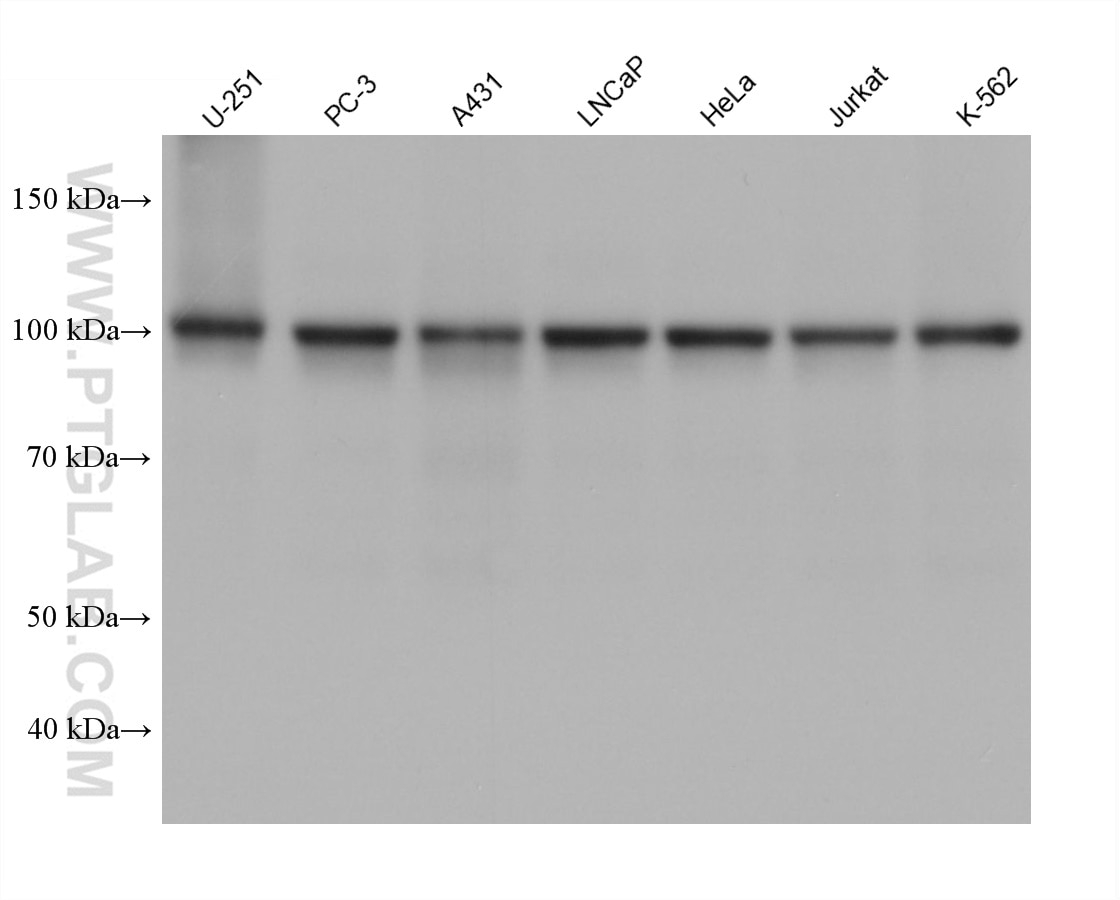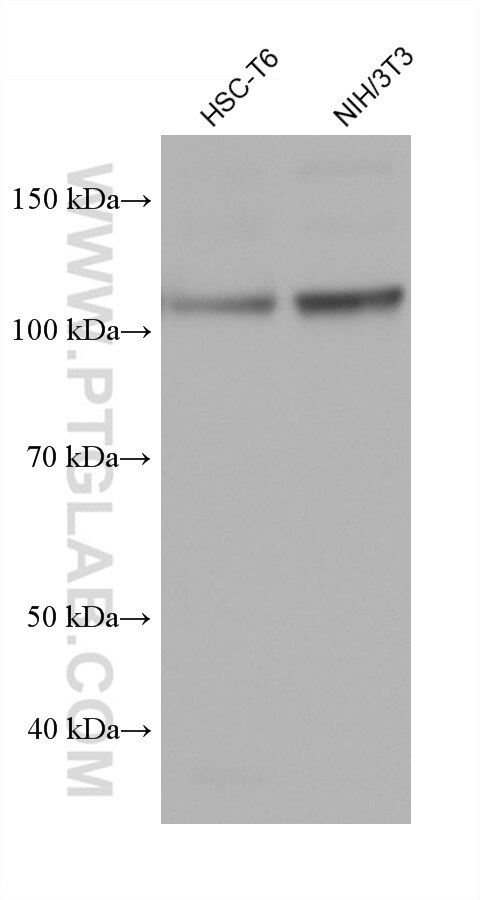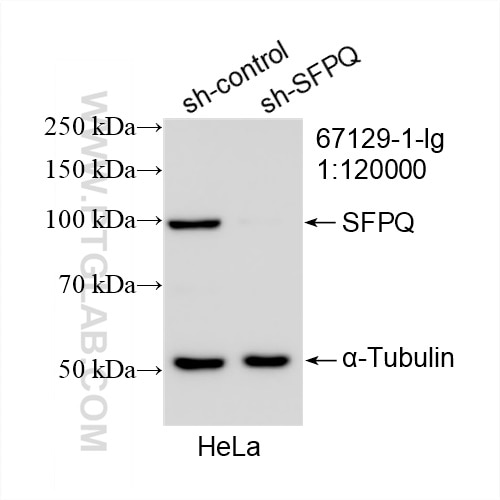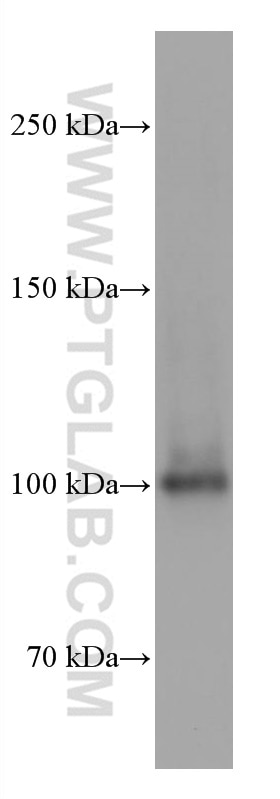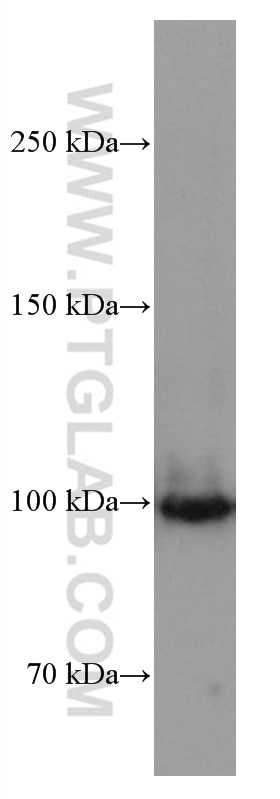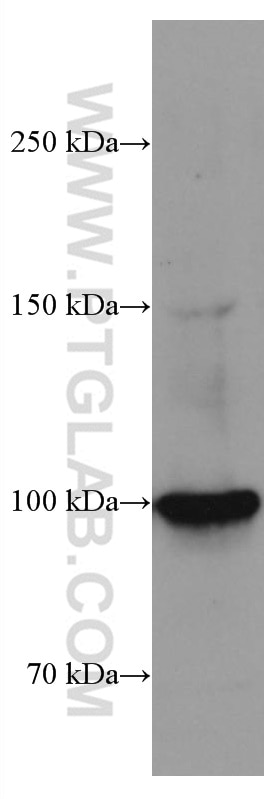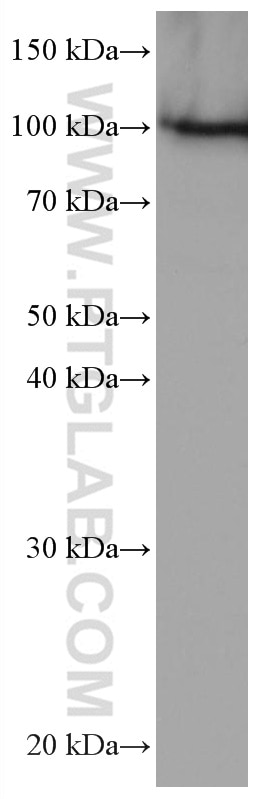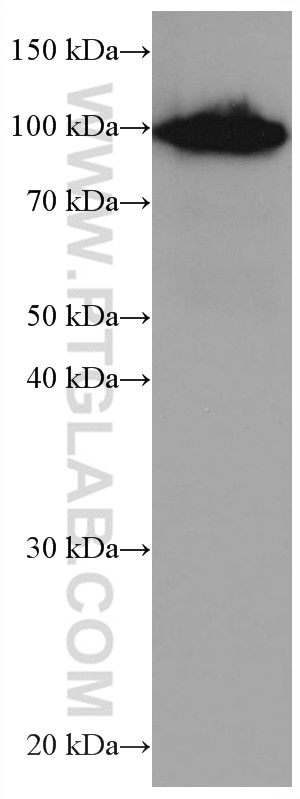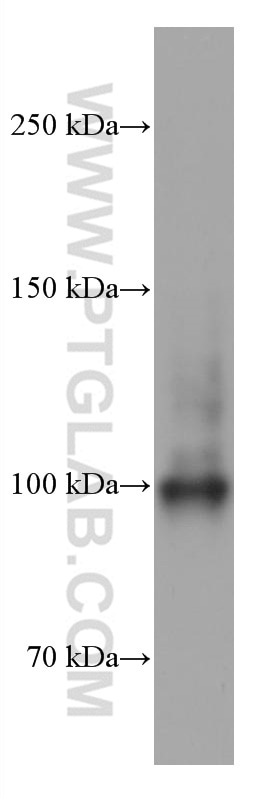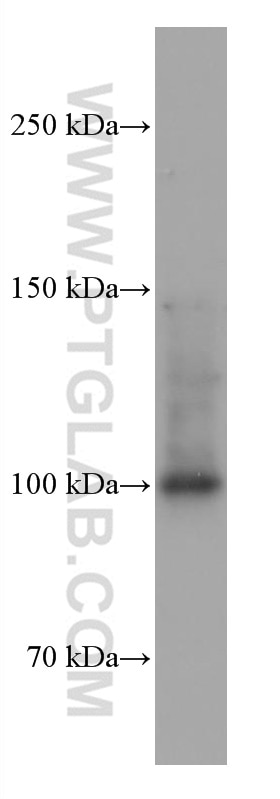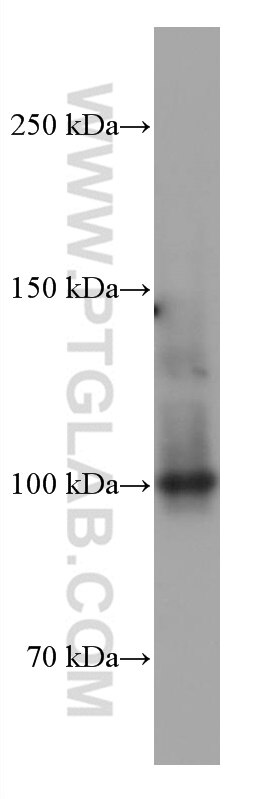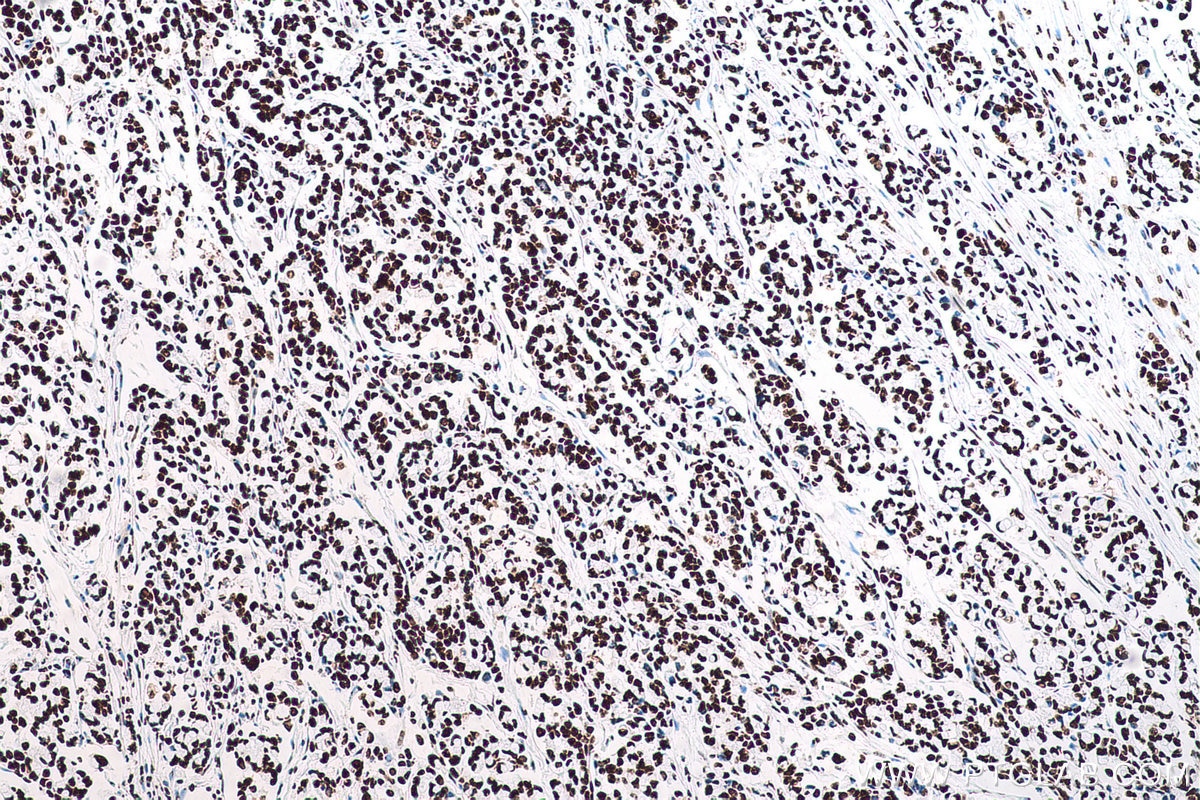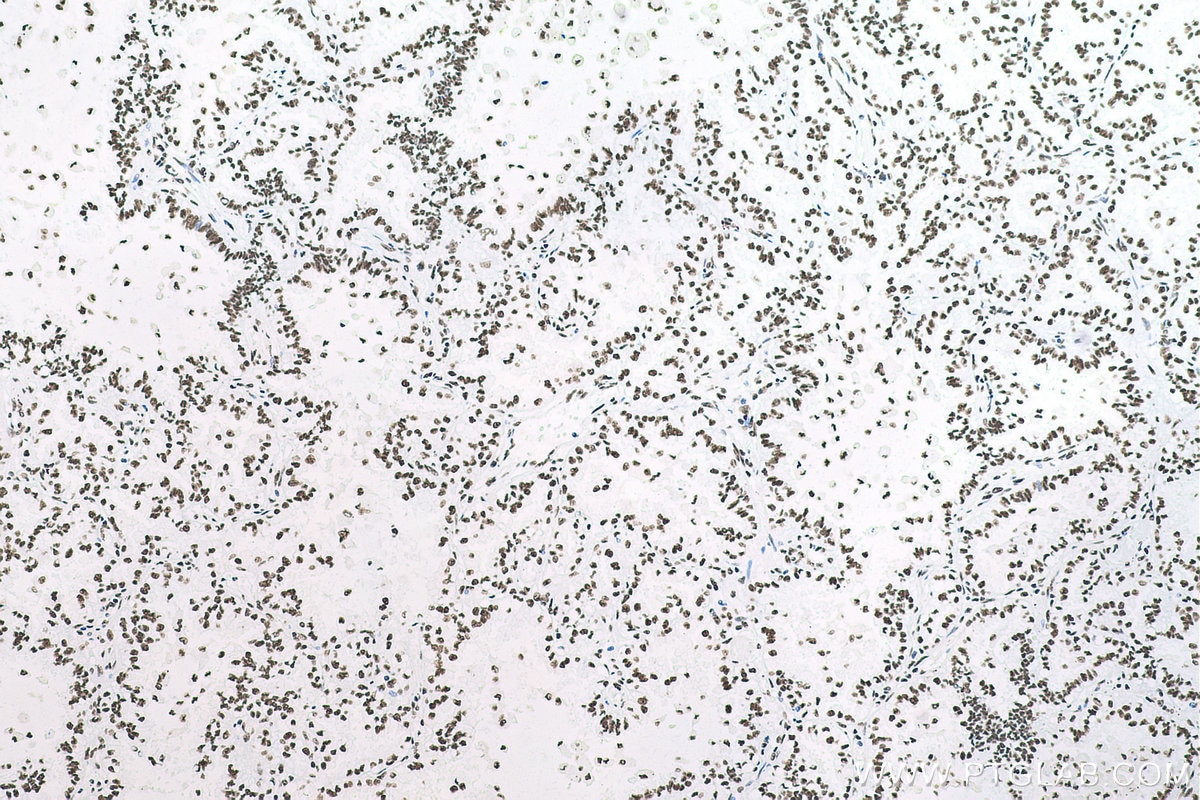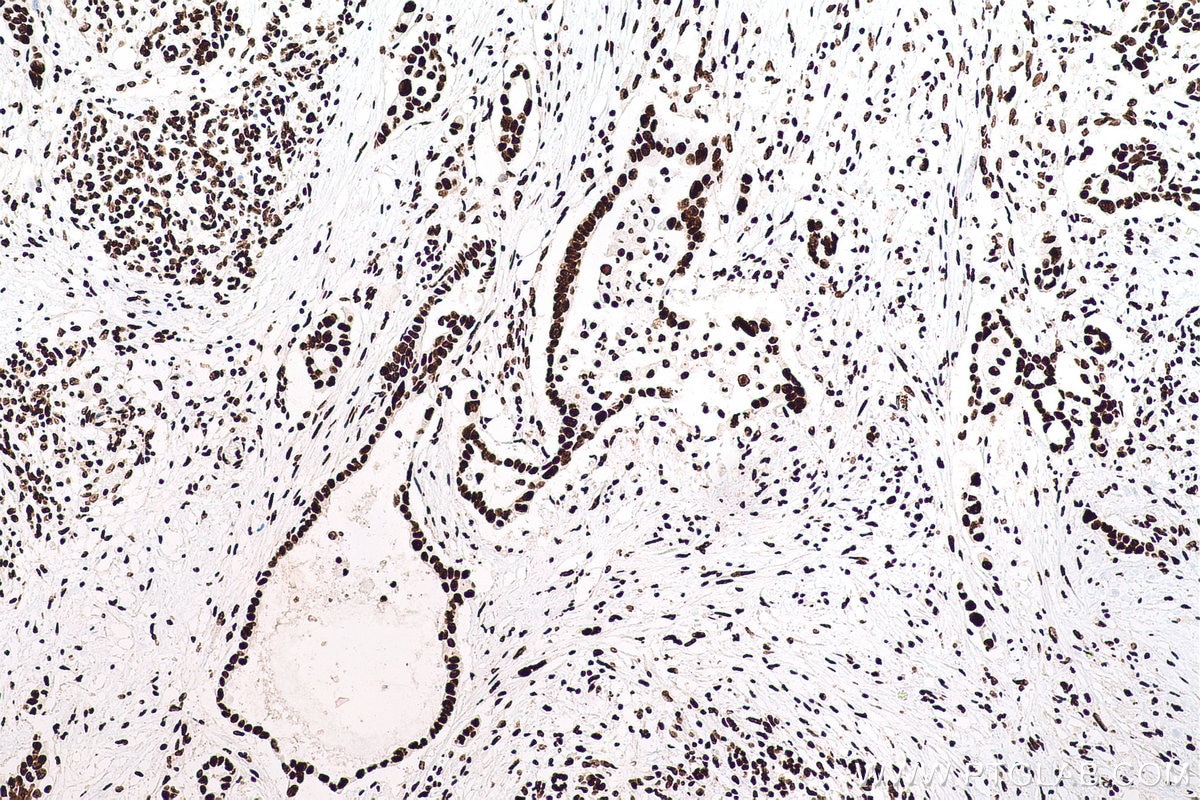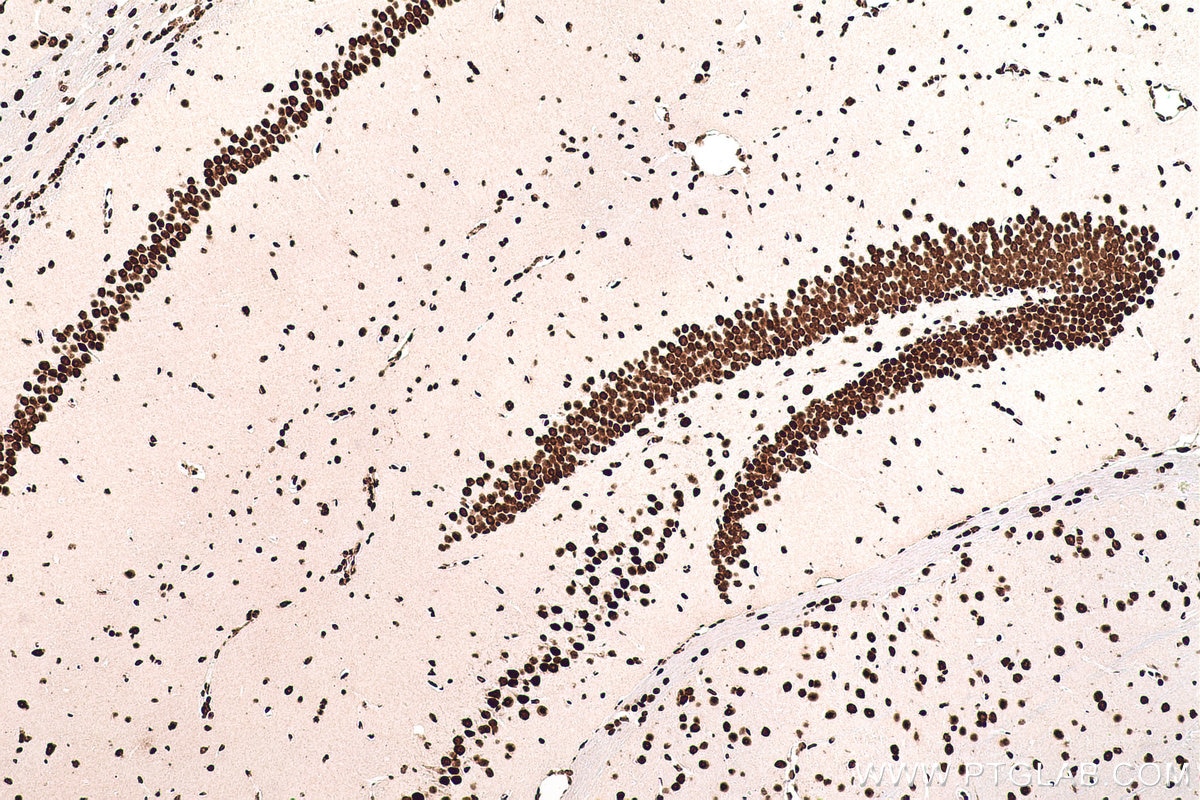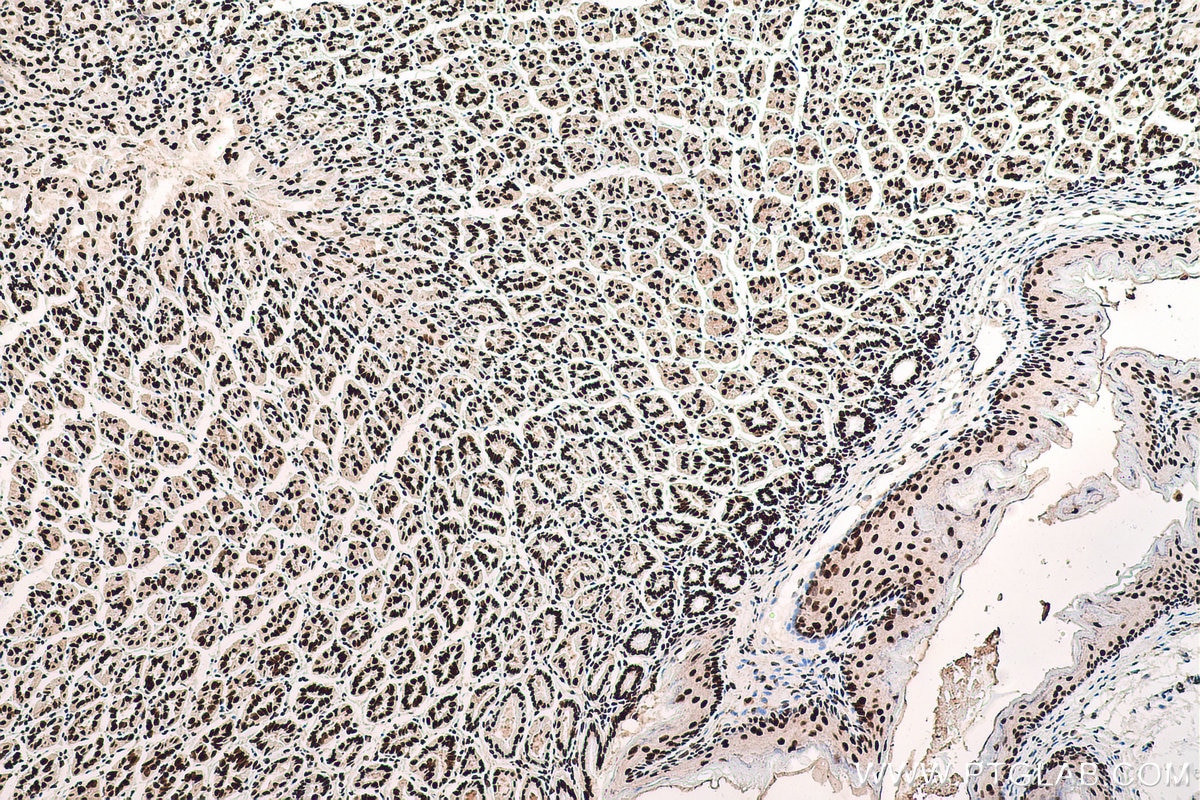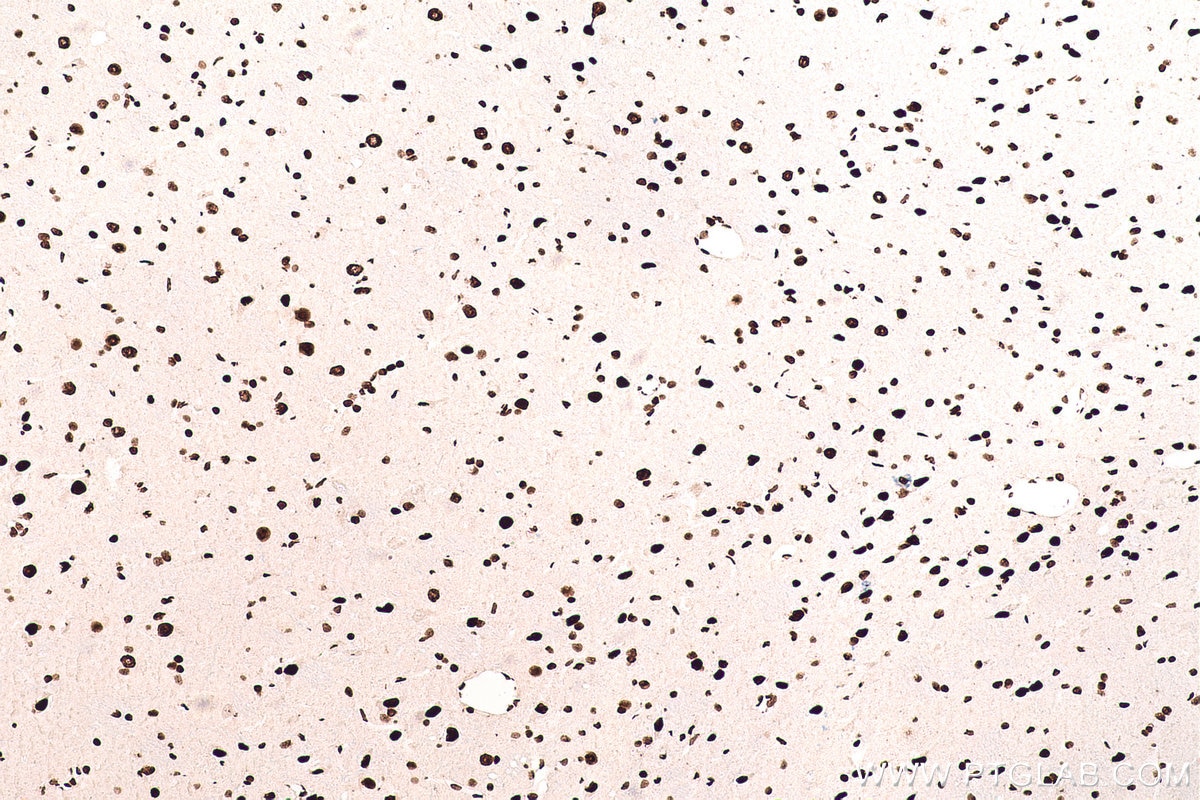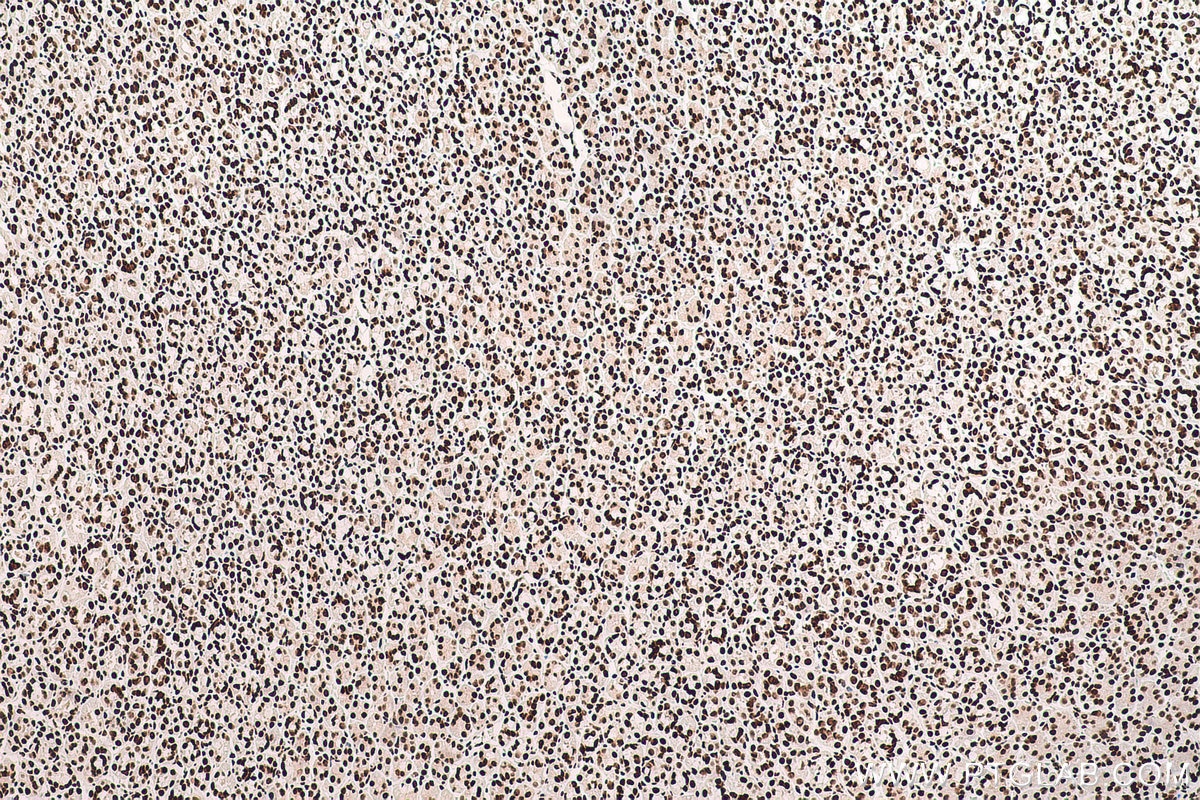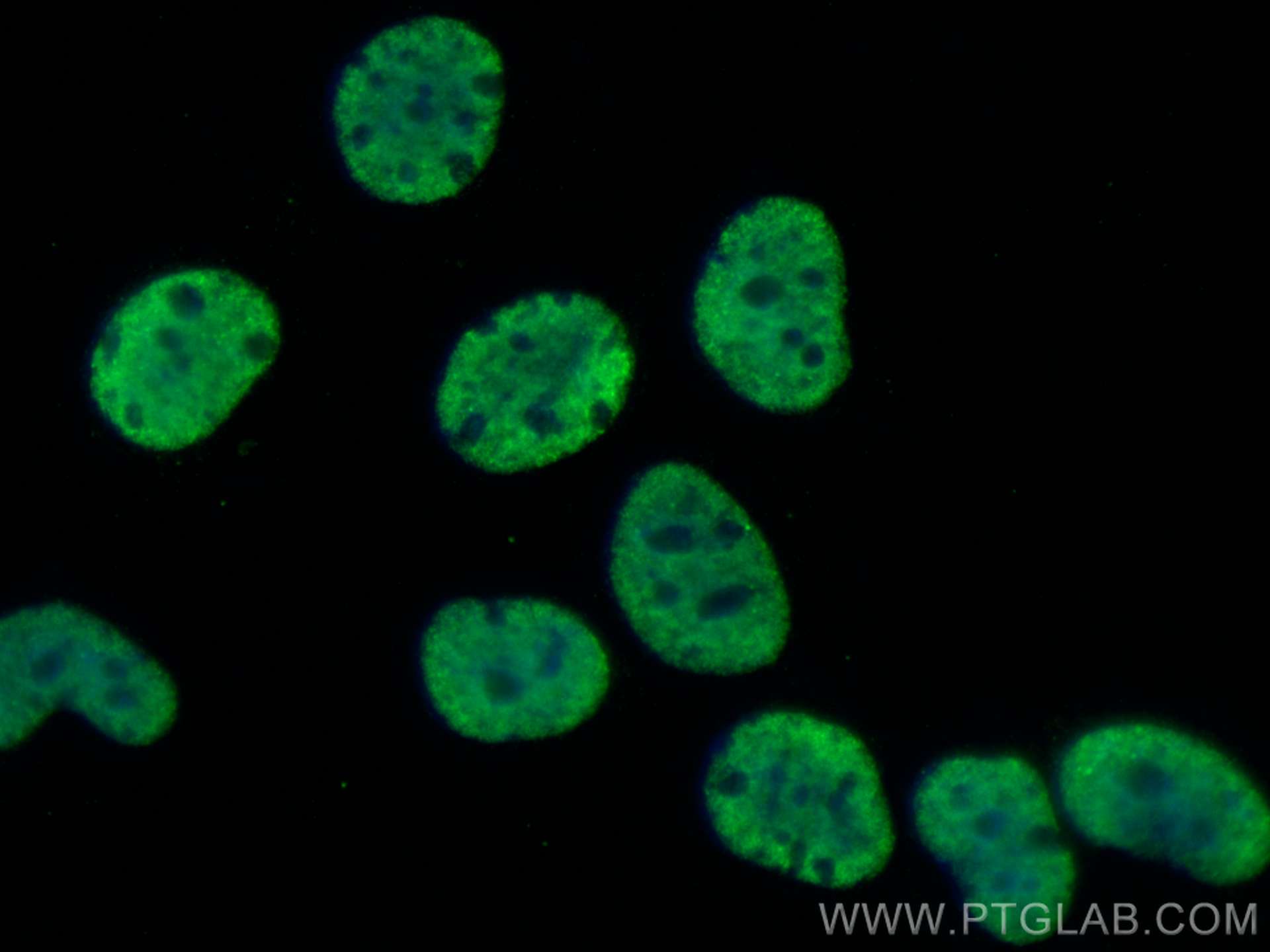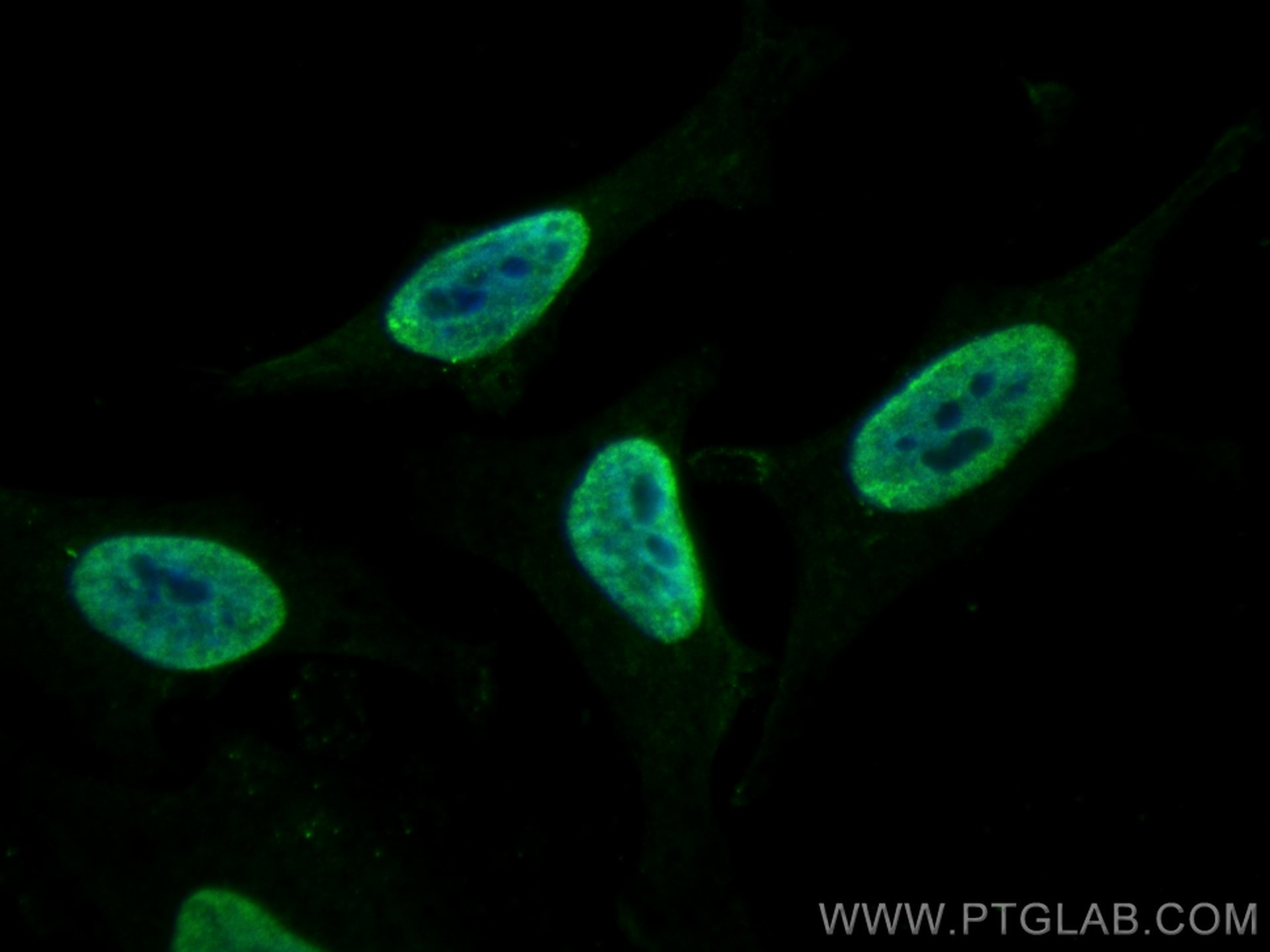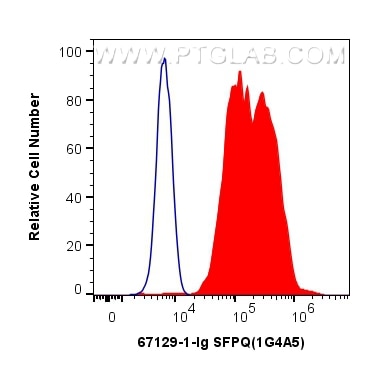- Featured Product
- KD/KO Validated
SFPQ Monoklonaler Antikörper
SFPQ Monoklonal Antikörper für FC, IF, IHC, WB, ELISA
Wirt / Isotyp
Maus / IgG1
Getestete Reaktivität
human, Maus, Ratte
Anwendung
WB, IHC, IF, FC, ELISA
Konjugation
Unkonjugiert
CloneNo.
1G4A5
Kat-Nr. : 67129-1-Ig
Synonyme
Galerie der Validierungsdaten
Geprüfte Anwendungen
| Erfolgreiche Detektion in WB | U-251-Zellen, A431-Zellen, HEK-293-Zellen, HeLa-Zellen, Jurkat-Zellen, K-562-Zellen, LNCaP-Zellen, NIH/3T3-Zellen, PC-3-Zellen |
| Erfolgreiche Detektion in IHC | Ratten-Magengewebe, humanes Kolonkarzinomgewebe, humanes Lungenkarzinomgewebe, humanes Pankreaskarzinomgewebe, Maushirngewebe, Maus-Magengewebe, Rattenhirngewebe Hinweis: Antigendemaskierung mit TE-Puffer pH 9,0 empfohlen. (*) Wahlweise kann die Antigendemaskierung auch mit Citratpuffer pH 6,0 erfolgen. |
| Erfolgreiche Detektion in IF | HeLa-Zellen, MCF-7-Zellen |
| Erfolgreiche Detektion in FC | HeLa-Zellen |
Empfohlene Verdünnung
| Anwendung | Verdünnung |
|---|---|
| Western Blot (WB) | WB : 1:5000-1:50000 |
| Immunhistochemie (IHC) | IHC : 1:2000-1:8000 |
| Immunfluoreszenz (IF) | IF : 1:400-1:1600 |
| Durchflusszytometrie (FC) | FC : 0.40 ug per 10^6 cells in a 100 µl suspension |
| It is recommended that this reagent should be titrated in each testing system to obtain optimal results. | |
| Sample-dependent, check data in validation data gallery | |
Veröffentlichte Anwendungen
| WB | See 1 publications below |
Produktinformation
67129-1-Ig bindet in WB, IHC, IF, FC, ELISA SFPQ und zeigt Reaktivität mit human, Maus, Ratten
| Getestete Reaktivität | human, Maus, Ratte |
| In Publikationen genannte Reaktivität | human |
| Wirt / Isotyp | Maus / IgG1 |
| Klonalität | Monoklonal |
| Typ | Antikörper |
| Immunogen | SFPQ fusion protein Ag7181 |
| Vollständiger Name | splicing factor proline/glutamine-rich (polypyrimidine tract binding protein associated) |
| Berechnetes Molekulargewicht | 76 kDa |
| Beobachtetes Molekulargewicht | 90-100 kDa |
| GenBank-Zugangsnummer | BC051192 |
| Gene symbol | SFPQ |
| Gene ID (NCBI) | 6421 |
| Konjugation | Unkonjugiert |
| Form | Liquid |
| Reinigungsmethode | Protein-A-Reinigung |
| Lagerungspuffer | PBS mit 0.02% Natriumazid und 50% Glycerin pH 7.3. |
| Lagerungsbedingungen | Bei -20°C lagern. Nach dem Versand ein Jahr lang stabil Aliquotieren ist bei -20oC Lagerung nicht notwendig. 20ul Größen enthalten 0,1% BSA. |
Hintergrundinformationen
SFPQ, also named PSF, encodes a nuclear factor implicated in the splicing and regulation of gene expression. SFPQ probably forms a heteromer with NONO and participates in DNA pairing and DNA break repair program. Very recently SFPQ was identified as a downstream target of tau, complete nuclear depletion and cytoplasmic accumulation of SFPQ were shown in the neurons and astrocytes of brains with Alzheimer's disease (AD), more strikingly, reduced SFPQ levels may progress together with tau pathology, these observation strongly suggests the important role of SFPQ pathology in neurodegenerative diseases including AD. SFPQ encompasses 707 amino acids and has a molecular weight of 76 kDa, although it typically migrates on a sodium dodecyl sulfate-polyacrylamide gel electrophoresis (SDS-PAGE) gel at an apparent molecular weight of ∼100 kDa. Proteolytic cleavage products of apparent molecular weights of 47 and 68 kDa, and an alternatively spliced form of 669 amino acids, have also been described in various cell types. (PMID: 25832716). Splicing Factor Proline and Glutamine rich (SFPQ) as the most significant intron-retaining transcript across diverse ALS-causing mutations (VCP, SOD1 and FUS). SFPQ protein binds extensively to its retained intron, which exhibits high cytoplasmic abundance in VCP mutation compared with controls. Crucially, the protein is less abundant in the nuclei of VCP mutation cultures and is ultimately lost from nuclei of MNs in mouse models (SOD1mu and VCP mutation transgenic mouse models) and human sporadic ALS post-mortem samples. In summary, our study implicates SFPQ IR and nuclear loss as general molecular hallmarks of familial and sporadic ALS.
Protokolle
| Produktspezifische Protokolle | |
|---|---|
| WB protocol for SFPQ antibody 67129-1-Ig | Protokoll herunterladen |
| IHC protocol for SFPQ antibody 67129-1-Ig | Protokoll herunterladen |
| IF protocol for SFPQ antibody 67129-1-Ig | Protokoll herunterladen |
| FC protocol for SFPQ antibody 67129-1-Ig | Protokoll herunterladen |
| Standard-Protokolle | |
|---|---|
| Klicken Sie hier, um unsere Standardprotokolle anzuzeigen |
Publikationen
| Species | Application | Title |
|---|---|---|
